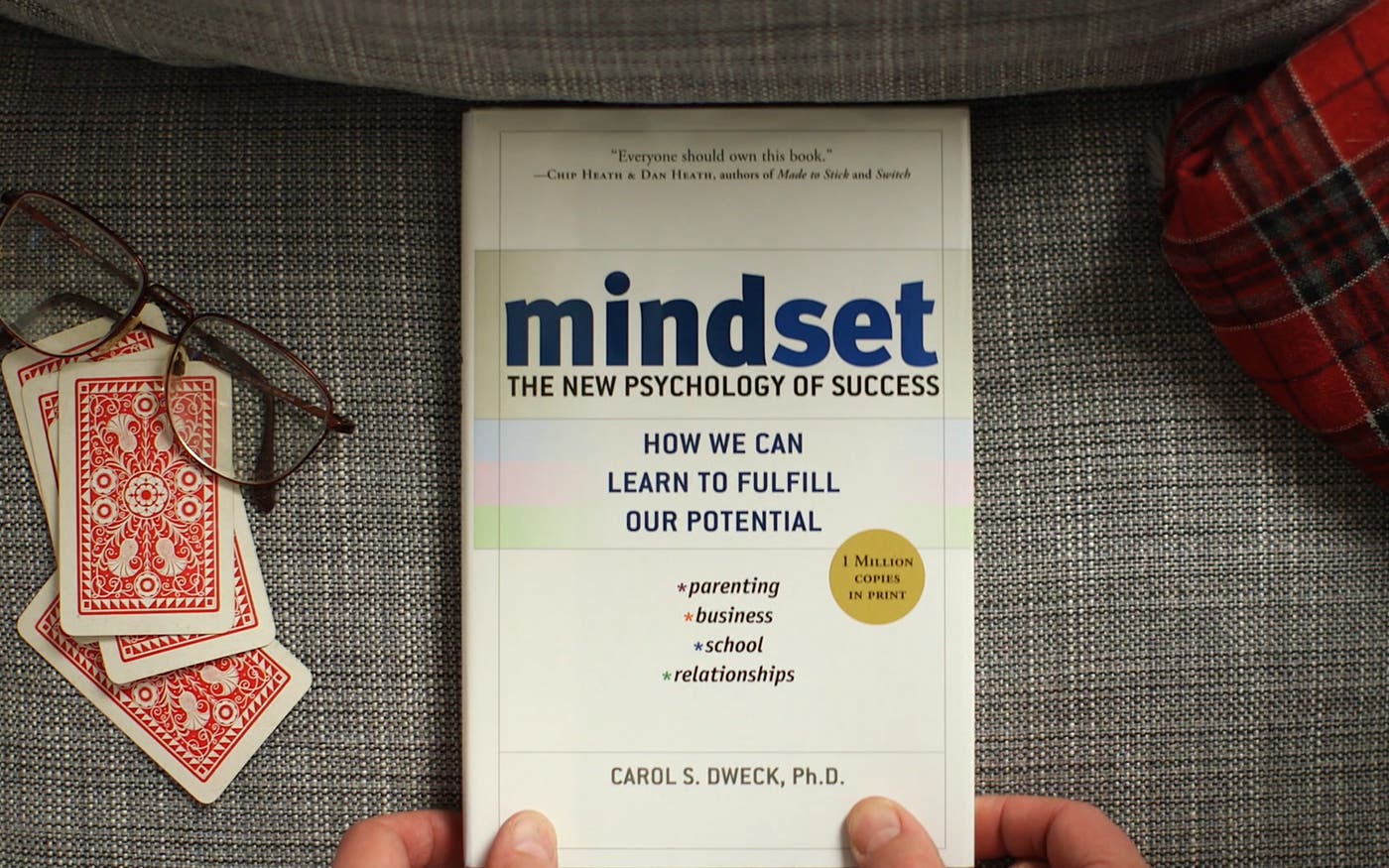
Mindset Over Matter
What you believe affects what you achieve
Revisiting Carol Dweck’s fascinating work on the growth mindset.

Even as my glasses have gotten smaller and hopefully cooler over the years, I am still a proud member of Nerd Nation. As such, I read a lot of books—usually more than 50 a year. Many of the books I review on Gates Notes are recent releases, because I figure people are generally more interested in hearing about newer works. But I also like to revisit older books that feel especially important or relevant. Mindset: The New Psychology of Success (2006), by the Stanford psychologist Dr. Carol Dweck, is one of those books.
Mindset first came to my attention a few years ago in a fascinating invention session on education with my friend Nathan Myhrvold, similar to the sessions Malcolm Gladwell described in his article “In the Air: Who says big ideas are rare?” Dweck’s research had a big impact on our thinking that day. And in the years since, Dweck and her research have helped my foundation colleagues and me understand more about the attitudes and habits that allow some students to persevere in school despite big challenges.
Here is Dweck’s thesis: Our genes influence our intelligence and talents, but these qualities are not fixed at birth. If you mistakenly believe that your capabilities derive from DNA and destiny, rather than practice and perseverance, then you operate with what Dweck calls a “fixed mindset” rather than a “growth mindset.” Our parents and teachers exert a big influence on which mindset we adopt—and that mindset, in turn, has a profound impact on how we learn and which paths we take in life.
In experiment after experiment, Dweck has shown that the fixed mindset is a huge psychological roadblock—regardless of whether you feel you were blessed with talent or not. If you have the fixed mindset and believe you were blessed with raw talent, you tend to spend a lot of time trying to validate your “gift” rather than cultivating it. To protect your self-identity as someone who’s super smart or gifted, you often steer clear of tough challenges that might jeopardize that identity. Here’s how Dweck puts it: “From the point of view of the fixed mindset, effort is only for people with deficiencies…. If you’re considered a genius, a talent, or a natural—then you have a lot to lose. Effort can reduce you.”
If you have the fixed mindset and believe you lost the genetic lottery, you also have little incentive to work hard. Why bother putting in a lot of effort to learn a difficult concept if you’ve convinced yourself that you’re lousy at it and nothing is going to alter that basic equation? When I was visiting with community college students in Arizona, one young man said to me, “I’m one of the people who’s not good at math.” It kills me when I hear that kind of thing. I think about how different things might have been if he had been told consistently “you’re very capable of learning this stuff.”
In contrast, people with the growth mindset believe that basic qualities, including intelligence, can be strengthened like muscles. It’s not that they believe that anyone can become the next Albert Einstein or Michael Jordan if they just work hard enough on their physics homework or fadeaway jumpers. Instead, in Dweck’s words “they believe a person’s true potential is unknown (and unknowable); that it’s impossible to foresee what can be accomplished with years of passion, toil, and training.” As a result, they have every incentive to take on tough challenges and seek out opportunities to improve.
One of the reasons I loved Mindset is because it’s solutions-oriented. In the book’s final chapter, Dweck describes the workshop she and her colleagues have developed to shift students from a fixed to a growth mindset. These workshops demonstrate that “just learning about the growth mindset can cause a big shift in the way people think about themselves and their lives.”
My only criticism of the book is that Dweck slightly oversimplifies for her general audience. Contrary to the impression that Dweck creates here (but probably not in her academic papers), most of us are not purely fixed-mindset people or growth-mindset people. We’re both. When I was reading the book, I realized that I have approached some things with a growth mindset (like bridge) while other things in a fixed mindset (like basketball).
The greatest virtue of the book is that you can’t help but ask yourself things like, “Which areas have I always looked at through a fixed-mindset lens?” and “In what ways am I sending the wrong message to my children about mindset and effort?” Thanks to Dweck’s skillful coaching, you’re almost guaranteed to approach these tough questions with a growth mindset.


